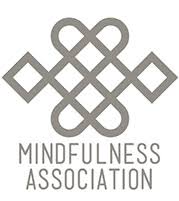What is Mindfulness?
Mindfulness and it’s various associated therapies are becoming more and more talked about in the media. Healthcare professionals such as GP’s, psychologists and pain management clinic staff are increasingly using mindfulness based methods in their work.
Mindfulness is a part of the overall Eastern psychology rooted in Buddhism. It would not be right to think it is religious however, since there are distinct differences between the uses of terminology in Eastern and Western cultures.
In the West, the period known as the Enlightenment caused a process called reductionism. As part of this splitting of knowledge into it’s reduced size parts, psychology, philosophy and theology were separated into different categories. In Eastern culture this did not happen. Therefore Buddhism may refer to faith, religion, psychology, philosophy or wider culture. Mindfulness is part of the psychology and philosophy of Buddhism. No adherence to any faith is required. The rich history of Eastern psychology dates back to at least 4500BCE and also has related psychologies in Japanese and Indian cultures.
What kinds of Mindfulness exist for therapy use?
In the west we have tended to split off elements of the wider eastern psychology and then employ them as “tool kits” for addressing problems. This has the disadvantage of not presenting the full picture or set of tools available. It does however have an advantage in that by using selected groups of tools it is possible to do research testing the effects of those specific methods on conditions and groups. Many of the types of mindfulness employed in the west have now developed rich bodies of research evidence to back them up,
Passive tools in mindfulness refer to meditation based practices of essentially “not doing” or being passive. “Active” methods use cognitive based analysis and thought tracing methods to actively work out what is happening psychologically. Active methods also often focus on the concepts of acceptance, commitment, being authentic and being kind. This is often built around a form of interpersonal therapy.
Typical types of mindfulness include:
- Mindfulness teaching: a form of psycho-education where the therapist or teacher instructs the client in a range of methods for self help and condition management.
- MBCT stands for Mindfulness Based Cognitive Therapy. This is a “toolbox” of methods using both active and passive tools.

- MBSR, developed by Kabat-Zinn, is a toolbox for mindfulness based stress reduction which is both passive and psycho-education based.
- Mindfulness with hypnosis is commonly used by a number of practitioners, with excellent research and publication by the President of the NACHP (Stuart’s main accreditation body), Dr Michael Yapko.
- Group work mindfulness, as the name suggests using passive and psychoeducation in a group.
- Work based mindfulness: using psychoeducation, passive and both cognitive and behavioural tools to help people in the workplace deal better with stress and improve performance.
- Japanese Mindfulness, rooted in Zen has additional models including Naikan (Art of gratitude) which looks at perception and Interpersonal psychotherapy, Morita (Japanese style coaching) which looks at how we handle emotions, and Satori which is a meditative method.
- Dialectic Behaviour Therapy: another style of cognitive therapy based mindfulness. Similar to MBCT and mindfulness with CBT / CBA but with minor differences.

- ACT: Acceptance and commitment therapy. Mindfulness focused on interpersonal therapy. A Buddhist version of the Zen training used as part of Naikan and Morita.

- Hygge, or the pursuit of Happiness Danish style, is a modelling of the identified reasons why Danish people are considered the happiest on Earth. it combines elements of mindfulness, perceptual and behavioural change and environmental adaptation. it also has elements similar to Morita.
Evidence for Mindfulness in clinical practice
There is extensive evidence for mindfulness being effective in clinical practice. Some of the evidence is referred to here but this is not exhaustive. NICE, the National Institute for Clinical Excellence recommend mindfulness based psychological therapy as well as recommending cognitive behavioural based psychological therapies. Specifically NICE (from 2004) recommend MBCT for depression.
Studies at the Oxford Mindfulness Centre (part of Oxford University) have indicated: measurable improvements from practising mindfulness in up to 20% of people with anxiety disorders, and MBCT therapy reduce recurrence rates in long term depression compared with normal care by 40-50%.
Persons suffering from the stress and anxiety of a Cancer diagnosis have been shown to benefit from mindfulness (Carlson & Speca, 2011 Mindfulness Based Cancer Recovery: a Step by Step MBSR Approach to Help you Cope with Treatment and Reclaim your Life. London: New harbinger). (Note this addresses the anxiety and not the disease).
Who provides Mindfulness?
Mindfulness is such a huge area that no one group has ownership. People, both practitioners and clinicians, come to mindfulness from a range of backgrounds and in a range of ways. Some examples include:
- Therapists who have a personal base in mindfulness through Buddhism, Martial Arts or philosophy and are otherwise qualified to provide psychotherapy or hypnotherapy.
- Psychotherapists with specific post qualification or CPD training in Mindfulness.
- Hypnotherapists who have been trained in mindfulness based self hypnosis and meditation methods.
- Life Coaches and Stress Management Consultants who have be trained in mindfulness based stress reduction methods.
- Complementary Therapists who use mindfulness (usually passive style) in their emotional, physical or holistic work.
There is no one recognised training or qualification or registration for mindfulness. Therefore clients should look for underpinning psychotherapy qualification and a good rooting in mindfulness itself. It is probably more important to look at the type of training completed and whether that fits the type of mindfulness you would benefit from. For example clinical application of mindfulness may be more applicable in therapy than classic training in running mindfulness classes.
Stuart’s provision of Mindfulness
Stuart has individually practiced mindfulness since the mid 1980’s, both through meditation and martial arts. His professional post graduate therapy diploma 1993-6 incorporated mindfulness based stress reduction methods. His second accreditation process with the NACHP in Humanistic, Cognitive behavioural and analytic psychotherapy, counselling and clinical hypnotherapy included humanistic and mindful practice and the NACHP’s President Dr M Yapko is a leading expert on using hypnosis and mindfulness in clinical practice.
Stuart has also completed extensive post graduate CPD training including a MSc Psychology, Diplomas in a variety of therapy methods, CPD courses in Teaching Mindfulness, Mindfulness Based Cognitive Therapy for depression, Overall Mindfulness, Naikan Mindfulness, Morita based mindful coaching, Mindfulness in relationships. Mindfulness for acceptance and commitment (Zen based but similar to ACT). Stuart has also completed certification for professionals in the use of ACT and a variety of advanced CPD courses for professionals in the use of mindfulness in clinical practice. Stuart is also part of a multi-faith organisation and personally follows a combination of Taoist, Buddhist and Kabbalah philosophy.
Stuart is registered with the The Complementary and Natural Healthcare Council (a Professional Standards Authority Accredited Register and Voluntary Regulator under hypnotherapy), and the Register of Health Care Practitioners (Voluntary register: psychoanalysis, coaching, psychotherapy, hypnotherapy, mindfulness). He is a fellow of the National Association of Counsellors Hypnotherapists. Stuart has completed extensive certification in the Clinical use of mindfulness, and group based clinical use of mindfulness.
Key words:
Psychotherapy, psychoanalysis, Mindfulness, meditation, MBSR, MBCT, DBT, ACT, mindful, meditation, thought process, anxiety, depression, stress, mental health, OCD, performance, work stress, work performance, psychotherapist, mindfulness practitioner, hypnotherapy, self hypnosis, psychological education, psychological training, self help, psychoeducation, life coaching, anxiety management, depression management, non drug depression treatment, non drug anxiety treatment, Edinburgh, Midlothian, Falkirk, Glasgow, Stirlingshire, counselling, counsellor, therapy, therapist.
Contact via the contact us page HERE
Common Search terms
anxiety, addictions, quit smoking, phobias, fear of flying, weight loss, panic attacks, gastric band hypnotherapy, alcohol abuse, food addiction, gambling addiction, depression, drug abuse, sleep disorders, insomnia, eating disorders, sexual issues, pain management, irritable bowel syndrome, low self-confidence, post-traumatic stress disorder (ptsd), sex addiction, relationship issues, sports performance, obsessions and compulsions, low self-esteem, stress, exam stress, blushing, tinnitus, childbirth, anger management, relaxation, chronic fatigue syndrome, bruxism (teeth grinding), public speaking, stuttering, anxiety, generalised anxiety disorder, relationship issues, depression, panic disorder, phobias, feeling sad, family issues, affairs and betrayals, separation and divorce, seasonal affective disorder (sad), bipolar disorder, postnatal depression, addiction(s), abuse, bereavement, low self-esteem, child related issues, personality disorders, alcoholism, low self-confidence, stress, anger management, sexual abuse, emotional abuse, depression and anxiety in children, sex addiction, eating disorders, drug abuse, borderline personality disorder, gambling, post-traumatic stress disorder (ptsd), binge-eating disorder, sex problems, behaviour problems, trauma, obsessive compulsive disorder (ocd), hoarding, suicidal thoughts, smoking, internet addiction, work-related stress, separation anxiety, loneliness, childhood bullying, attachment disorder in children, domestic violence, childhood bereavement, anorexia nervosa, children’s learning difficulties, narcissistic personality disorder, bulimia nervosa, asperger’s syndrome, self-harm, gender dysphoria, physical abuse, obsessive-compulsive personality disorder, avoidant personality disorder, sexuality, career, autism, adhd, dependent personality disorder, dissociation, paranoid personality disorder, antisocial personality disorder, schizoid personality disorder, histrionic personality disorder, schizotypal personality disorder, attachment disorder, body dysmorphic disorder, passive aggressive behaviour, infertility, chronic fatigue syndrome/me, paranoia, miscarriage, carer support, young carers, abortion, cancer counselling, disabilities, spirituality, bullying, adoption, pregnancy and birth,mlearning difficulties, hearing voices, dementia, redundancy, psychosis, discrimination, mental health, schizophrenia, tourette’s syndrome, hiv/aids counselling, supervisor, supervision, cbt, supervisors, Edinburgh, Midlothian, Glasgow, Falkirk, Scotland





